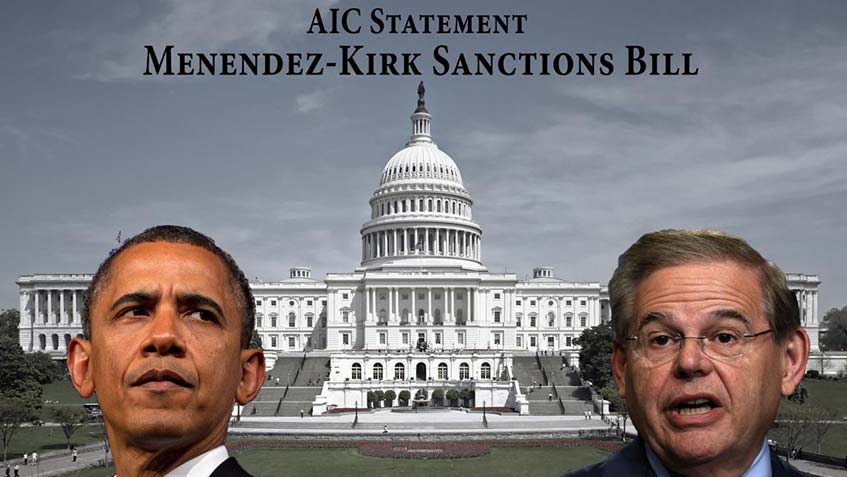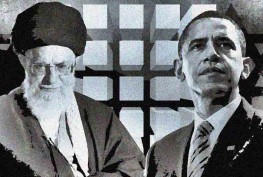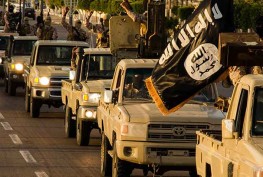While Iranian and American officials are negotiating over the nuclear issue, the US Congress is pushing for new sanctions legislation. Even before it is finalized, drafts of the “Nuclear Weapon Free Iran Act of 2015,” co-sponsored by Senators Bob Menendez (D-NJ) and Mark Kirk (R-IL), are in circulation. The latest draft calls for new sanctions that would be “triggered by violations by Iran of any interim or final agreement regarding its nuclear program, failure to reach a final agreement in a discernible time frame, or the breach of other conditions…”
This threat of potential new sanctions has sparked an intense public debate between Republican and pro-sanctions Democratic Senators on one side and the Obama administration on the other. Even Conservative British Prime Minister David Cameron sided with Democratic President Obama in opposing the bill in a joint press conference. Although the bill is likely to achieve a filibuster-proof 60-vote majority in the Senate, Obama has already threatened to veto it. Less clear is whether the bill can muster 67 Senators to override the President’s veto.
The common wisdom among observers who favor diplomacy is that the White House is the faithful party seeking a deal, and that if only these recalcitrant Congressional hawks would step aside, Secretary of State John Kerry and his fellow negotiators could strike a fair deal with Iran. They also argue that if this bill, which only imposes sanctions if a deal is not struck or if Iran breaks its obligations, passes, Iran may walk away, increasing the likelihood of a war. The truth is more complicated than simply “bad Congress, good White House.”
First, this bill was originally introduced in the fall of 2013 when negotiations began in Geneva, leading to the Joint Plan of Action (JPOA). After it became clear that Iran was making good on its concessions, the bill died out. It was reintroduced again in the winter of 2014 when negotiations restarted, leading to another round of major concessions from Iran in return for the release of some of its own assets like in the first round. Now, for the third time, the bill is being introduced right when negotiations have commenced in Geneva focused on concluding a “comprehensive” deal.
The Congress wants these negotiations to extract and implement the maximum possible concessions. The White House, which has dragged its feet for so long to conclude a deal, is using the bill and its veto to convince Tehran of its good faith. President Obama needs Ayatollah Khamenei’s trust to gain deeper concessions required for a comprehensive deal. When the P5+1 agreed to the JPOA, they promised to “maintain a constructive atmosphere for negotiations in good faith.” It is now doubtful that 5+1 will keep its promise when Iran is suffering from economic woes, sanctions and falling oil prices.
Iran is a signatory to the Nuclear Non Proliferation Treaty (NPT), which outlines its rights and obligations as a non-weapons state. However, the concessions being demanded of Iran go well beyond the NPT’s framework and even beyond the framework of the Additional Protocol, a program that strengthens and extends safeguards. In fact, the US and its negotiating partners are demanding that Iran ship its stockpiles of low enriched uranium to Russia for conversion to fuel rods. Iran’s past nuclear behavior is said to justify these extra-NPT demands. The negotiations so far seem to have failed to establish any trust.
Even the country’s ballistic missiles, which Iran insists are necessary for defensive purposes, have emerged as a significant issue, with the administration demanding that they be addressed at the negotiating table. This is said to have been required by the UN Resolutions, which Iran considers “illegal.” Ostensibly preventing Iran from “ever” and “under any circumstances” (the language used in the preamble to the JPOA) producing or seeking a nuclear weapon is now being used as a stepping stone to turn Iran into an impotent regional player.
The American Iranian Council, which has opposed all Iran sanctions since its founding, remains opposed to the Menendez-Kirk bill. We are also concerned that a resolution to the nuclear dispute is pushing Iran further into the Russian orbit, and stripping it of its defensive capability. A weaker Iran is not in the best interest of the US or the region. Thus, observers should not delude themselves into believing that just because the administration is against an unfair bill, that it is by default for a fair nuclear deal and a lasting improvement in US-Iran relations.
Rather, we call on the negotiating parties to engage in good faith, work hard to build trust, and take a long view of the “comprehensive“ deal that they might reach. In tandem with these requirements, verification must be built into a fair deal that affords Iran its rights as an NPT signatory in the context of its obligations.This can be achieved by demanding full transparency and a stringent safeguards regime to ensure that enriched uranium is only directed toward civilian purposes. The Council believes that this path can lead to a fair and lasting nuclear deal.




